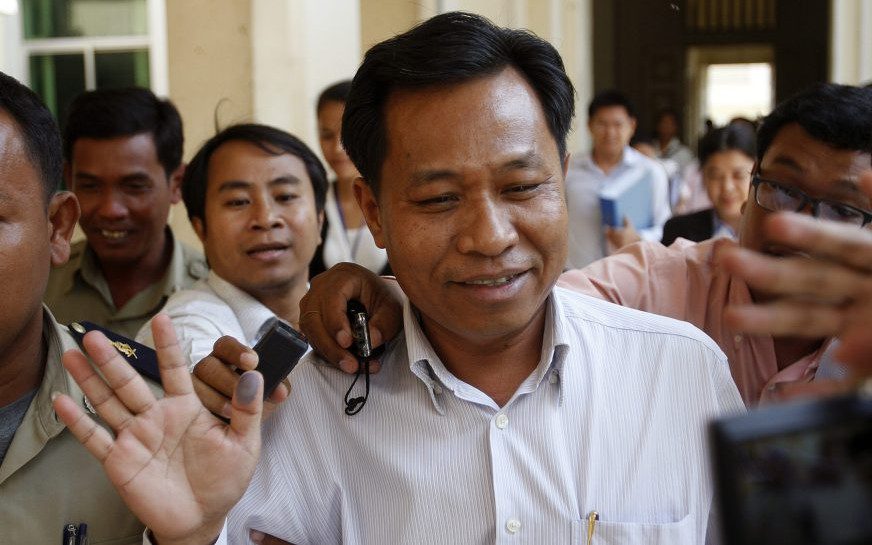A former Bavet governor who was convicted for shooting protesting garment workers in 2012 was promoted in the Ministry of Interior, according to a government document from March.
Chhouk Bandith was convicted in 2013 for shooting and injuring three protesting garment workers in Svay Rieng’s Bavet city the previous year. The then-city governor was not arrested and turned himself in only after Prime Minister Hun Sen ordered his capture.
Bandith was given an 18-month sentence for intentional violence, a ruling that was decried by rights groups at the time. Bandith was released from prison in 2015 but it is unclear when he joined the Interior Ministry as an official.
Khieu Sopheak, a ministry spokesperson, said he did not know Bandith’s role in the ministry.
A royal decree dated March 3, 2022, promotes Bandith to a higher level in the government bureaucracy, making him eligible to be a department director and inspector general, or any equivalent position.
Unionists, who were at the forefront of calls for his arrest a decade ago, said they were shocked and disappointed with Bandith’s ascension in the bureaucracy.
Pav Sina, president of the Collective Union of Movement of Workers, said it was disappointing to see the promotion of a government official who was convicted and sentenced to prison.
He said it was clear that there were different standards for dealing with workers’ demands and with errant government officials.
“This will make workers even more hurt and could make some powerful individuals follow this example from one to another,” he said. “It shows that impunity still exists in our society.”
Ath Thorn, who heads the Cambodian Labor Confederation, said that an official like Bandith should not be given more seniority.
“For me, I don’t welcome or admire the handing of titles to such a person, because he has committed a bad thing against workers and workers will not welcome him to be a higher official,” he said.
Ny Sokha, a human rights investigator with Adhoc, said the Law on the General Statutes of Civil Servants prohibits the employment of people who have been convicted. He added that the promotion reflects badly on the Interior Ministry.
“I think with this case, the Ministry of Interior should thoroughly consider the appointments of its officials,” he said. “It will make the public lose trust in the ministry.”












